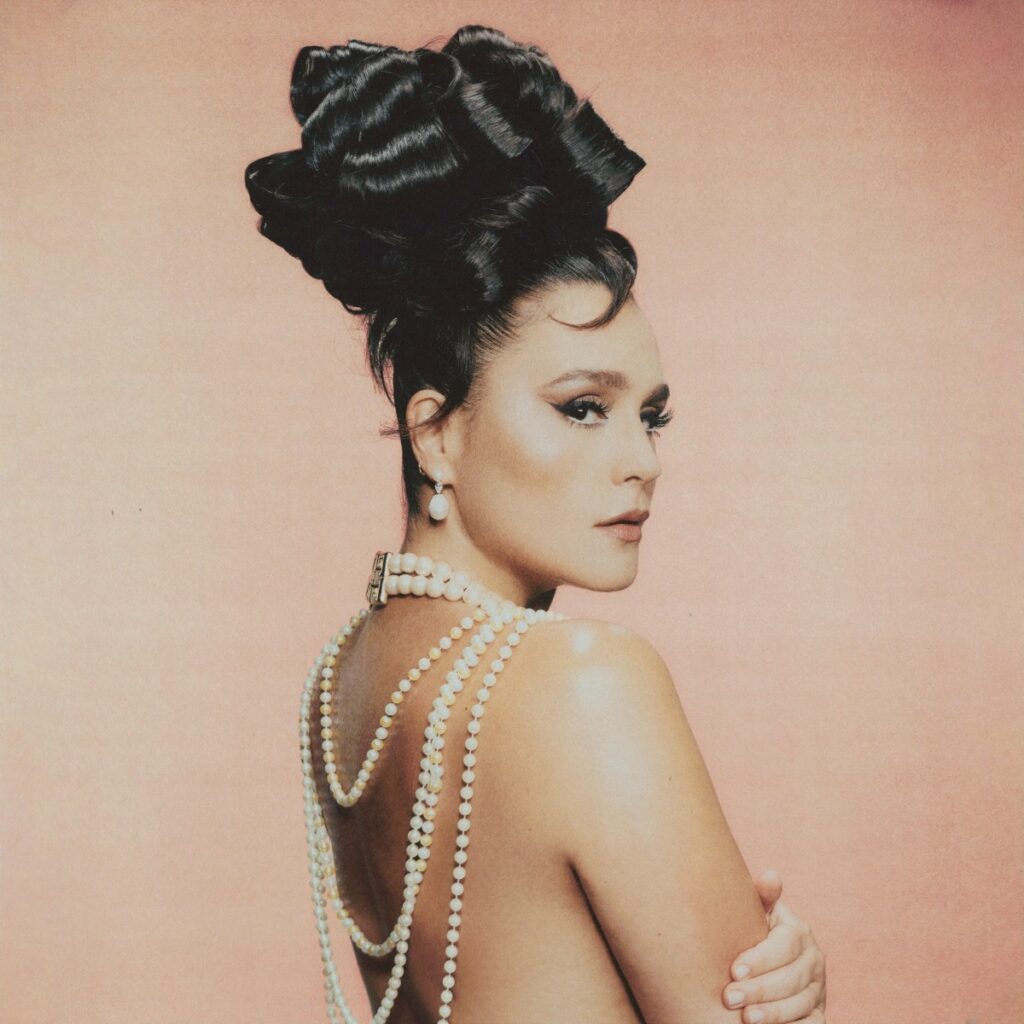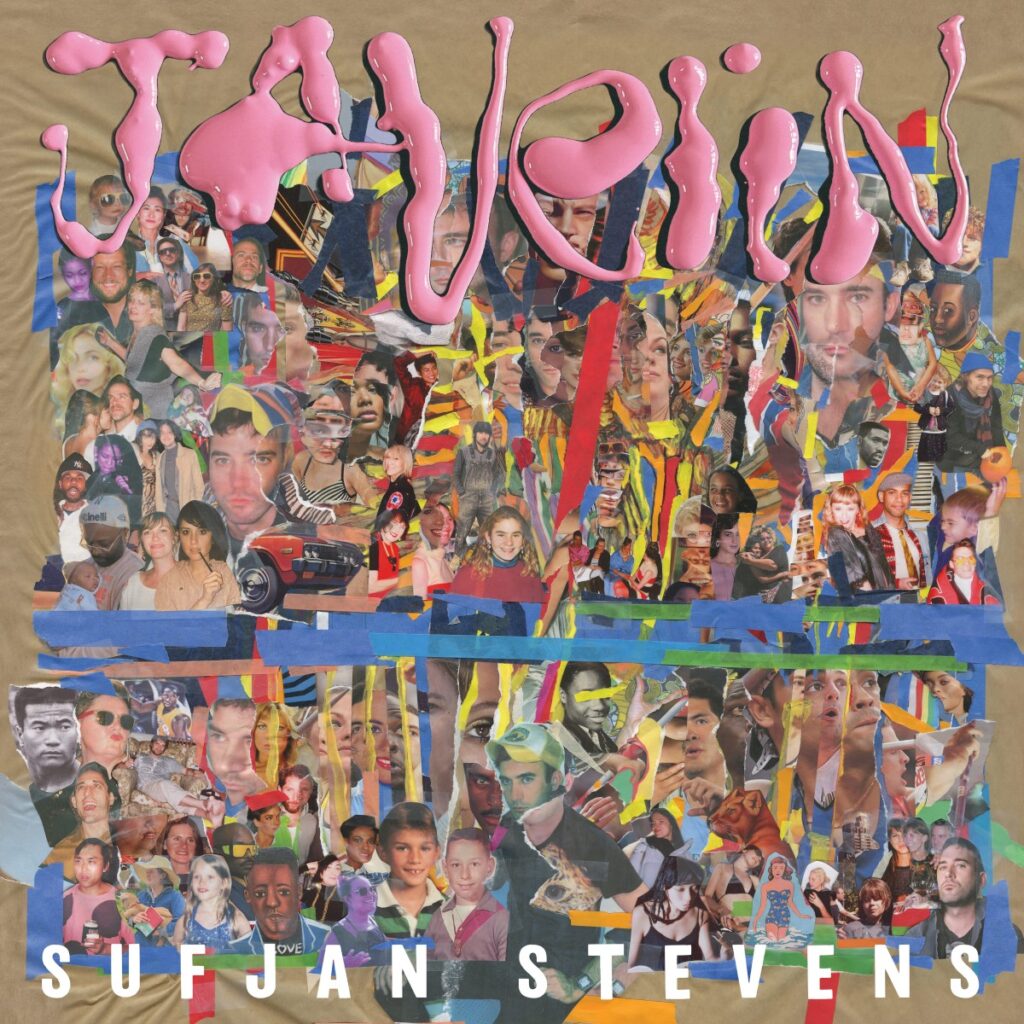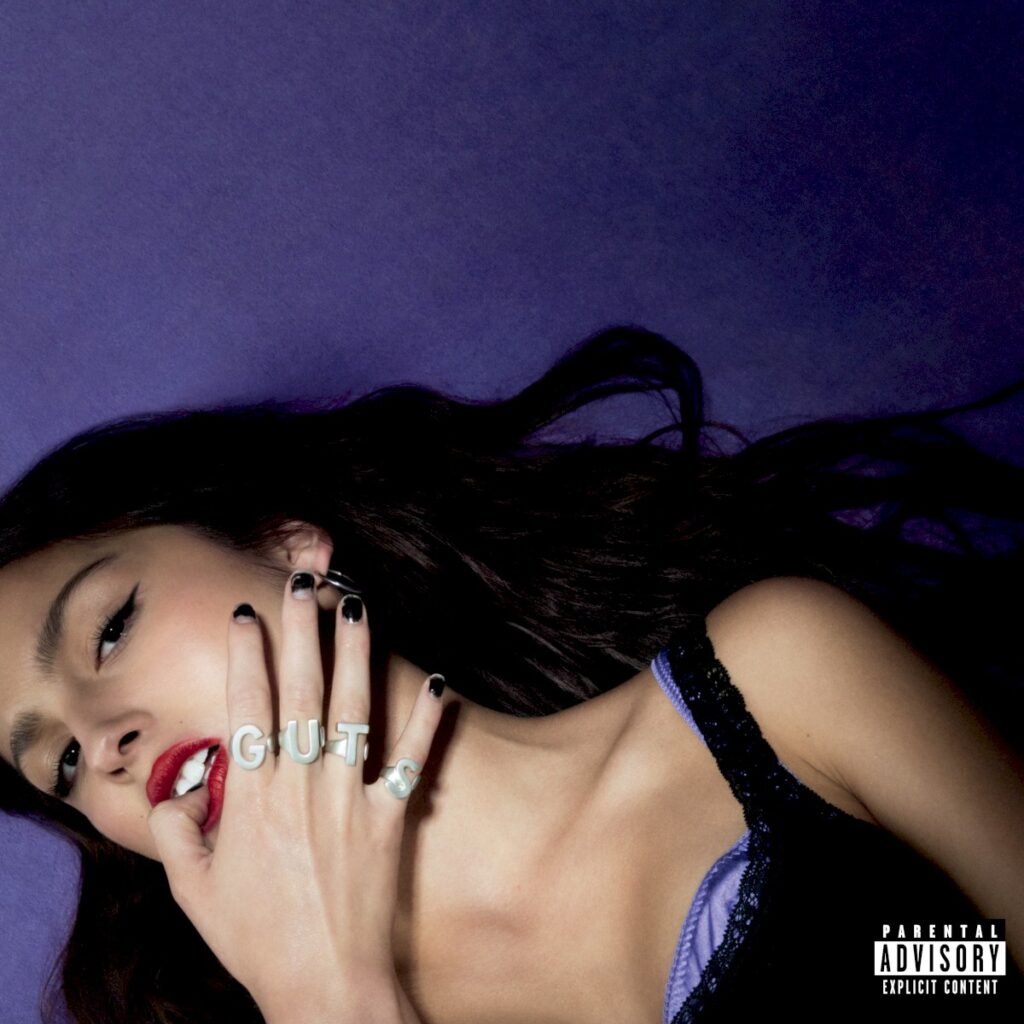Previously,
The Best 20 Albums of 2023: My Picks #20-16
The Best 20 Albums of 2023: My Picks #15-11
The Best 20 Albums of 2023: My Picks #10-6
5.
Jessie Ware, ‘That! Feels Good!’

Why do my realities take over all my dreams?
Gimme something good that’s even better than it seems
Why does all the purest love get filtered through machines?
Jessie Ware’s fifth studio album, That! Feels Good!, comes as a jubilant continuation of her critically-acclaimed 2020 album What’s Your Pleasure?. She explores the scintillating terrains of disco once again, armed with confidence and a profoundly celebratory vision. The conceptual heart of That! Feels Good! revolves around embracing joy, empowerment, and pleasure. Jessie Ware herself has described the album as a celebration of joy and a reflection of her feeling “free”. Ware’s aspiration was to create a record that feels loose, joyful, and groove-led—an aspiration achieved through vibrant and upbeat musical compositions. Further delving into this theme, Ware sought inspiration from iconic disco elements and figures, incorporating the liberating and extravagant vibes of classic disco music. This thematic focus is not merely nostalgic but reflective of Ware’s understanding of the genre’s socio-political significance, especially its resonances within queer history. With tracks like Shake the Bottle, she provides a cheeky, unabashed homage to promiscuity, reminiscent of Mambo No. 5 but richer in character and narrative depth. Tracks like Beautiful People and These Lips emphasize themes of inclusivity and human connection through Ware’s sultry and inviting vocals. The album’s leading single, Free Yourself, stands out as an anthem of liberation, urging listeners to cast off societal constraints and embrace their true selves. Musically, That! Feels Good! is a lush, elaborate composition marrying orchestral elements with dance floor staples. Ware and her collaborators, notably including producers Stuart Price and James Ford, have pulled parts from the classic disco playbook and reassembled them with contemporary flair. The title track opens with a captivating chorus and a charismatic clavinet line that exudes the vibrant essence of 1970s funk. Pearls is an effervescent track with an addictive, campy appeal marked by its “la, la, la” refrain, demonstrating Ware’s versatility. Begin Again Integrates gentle strings and light, gospel influences, reflecting on themes of renewal and revival. The song’s subtle instrumental nuances evoke an aura reminiscent of classic hallmarks of soul and R&B.
4.
Sufjan Stevens, ‘Javelin’

So you are tired as the sun
Are you with or without a friend?
Bring me back everything caught in your shield
Let everything else descend
Sufjan Stevens’ ninth studio album, Javelin, marks a significant return to his singer-songwriter roots. Unlike many of Stevens’ previous works, Javelin is not a concept album. Stevens is renowned for his thematic projects like Illinois and Michigan, where he explores the stories of these states through his music. Even Carrie & Lowell was a concept album, focusing on his mother’s death and her brief marriage to Lowell Brams. However, Javelin diverges from this approach, presenting a series of personal truths rather than a cohesive narrative. The album is deeply personal, reflecting Stevens’ experiences of grief, love, and faith. Written as an ode to his late partner, Evans Richardson, who passed away in April 2023, Javelin navigates themes of queer romance, devotion, and loss. The album’s thematic focus on heartbreak and the complexities of love is evident throughout its ten tracks, making it one of Stevens’ most emotionally charged releases to date. The album opens with Goodbye Evergreen, where he acknowledges the end of a relationship with poignant lines like, “You know I love you/But everything heaven sent must burn out in the end.” Will Anybody Ever Love Me? poses existential questions about love and acceptance, with Stevens asking, “Will anybody ever love me? For good reasons, without grievance, not for sport?” The album’s longest track, Shit Talk, explores the ebb and flow of romantic relationships, with Stevens’ voice rising in tempo alongside a cacophony of heavy instrumentals as he repeats, “I don’t want to fight at all.” Musically, Javelin is a blend of Stevens’ signature acoustic style with elements of orchestral and electronic music. The album begins with soft acoustic guitar and Stevens’ tender vocals, creating an intimate atmosphere that feels like a private performance. As the songs progress, they swell into larger, more complex arrangements, incorporating celestial choral harmonies, flutes, and chiming sounds that give the soundscape a heavenly sensibility. Tracks like Genuflecting Ghost benefit from this approach, with Stevens’ whispery inflection combined with choir support, evoking a dreamy characteristic in his music. Stevens’ ability to blend acoustic and electronic elements is particularly evident in tracks like Goodbye Evergreen, where plodding piano balladry transitions into a cascade of woodwinds, and A Running Start, which features some of the smoothest, most aerodynamic post-rock folk-pop of his career.
Now we dance in our catastrophe
Ramparts in the sky that flash with horror
Let’s take these chances, no more amnesty
Nothing else remains as once beforeRest assured, empires will fall
Insecure, restless and small
Sacred word, bind me, insult
As I praise your name
3.
Caroline Polachek, ‘Desire, I Want To Turn Into You’

Caroline Polachek’s second studio album, Desire, I Want To Turn Into You, marks a significant evolution in her career as a solo artist. The album’s title encapsulates the central theme of the record: the all-consuming nature of desire. Polachek explores this theme through a variety of lenses, including love, faith, and lust. Polachek herself has described the album’s title as reflecting the all-consuming feeling of falling in love, where one desires to obsessively learn from and become the object of their affection. The album’s thematic scope is broad, encompassing moods and states of being such as campy, freaky, slutty, dissociated, heady, dangerous, and ephemeral. The love explored on Desire is not the result of a patient and sustainable partnership, but a violent, all-or-nothing immersion. Polachek’s lyrical prowess is evident in tracks like Welcome to My Island, where she juxtaposes brattitude with sober reflections on her deceased father’s thoughts on staying true to oneself. The song Sunset features poignant lines like “So many stories we were told about a safety net/But when I look for it, it’s just a hand that’s holding mine,” capturing the tension and uncertainty of modern life. The album also delves into more abstract and surreal territory. For instance, Billions uses hyper-specific and enigmatic imagery to explores a psychedelic, mythological world, while Blood and Butter delves into a pagan folk universe. These songs highlight Polachek’s ability to create vivid, imaginative worlds through her lyrics, making the album a rich tapestry of emotions and experiences.
Sonically, Desire, I Want To Turn Into You is a genre-blending masterpiece. Described as an art pop, alternative pop, and new-age record, it incorporates elements of electronic, rock, and trip-hop. The album features an eclectic mix of instruments, including bagpipes, children’s choirs, and Spanish guitar, creating a diverse sonic palette that keeps the listener engaged from start to finish. Polachek herself described the album as “a very maximalist album,” and this is reflected in the rich, multi-dimensional production. The album’s opener, Welcome To My Island, sets the tone with its soaring soprano and thumping beats. The song features a Daft Punk-toned vocoder and a powerhouse hook reminiscent of Cher’s Believe, creating a sense of euphoria and urgency. This dynamic energy is a hallmark of the album, with tracks like Bunny Is a Rider and Smoke showcasing Polachek’s ability to craft infectious, high-energy pop songs. Tracks like Fly to You pair a spiraling melody with a rapid-fire drum n’ bass beat, showcasing Polachek’s ability to blend different musical styles seamlessly. Another notable track, Hopedrunk Everasking, almost sounds like a madrigal, with its echo-laden vocals and distant instrumentation, adding a classical touch to the album.
So many stories we were told about a safety net
But when I look for it
It’s just a hand that’s holding mine
I’m wearing black to mourn the sudden loss of innocence
And that’s alright because it hides the dirt
And hides the wine
2.
boygenius, ‘the record’

But it feels good to be known so well
I can’t hide from you like I hide from myself
I remember who I am
When I’m with you
Your love is tough
Your love is tried and true blue
boygenius, the indie rock supergroup composed of Phoebe Bridgers, Julien Baker, and Lucy Dacus, has delivered a compelling debut full-length album, the record. The overarching concept of the record lies in its collective approach. Unlike many supergroups that merely combine their members’ established styles, boygenius strives to create a unique band identity that resonates through its tracks. The album’s opening track, Without You Without Them, sets the tone with a poignant question: “Who would I be without you?” This line encapsulates the album’s central theme of cherishing formative relationships and acknowledging their role in shaping one’s identity. Lucy Dacus has emphasized that her life is defined by her friends, and this sentiment is woven throughout the album. This album explores themes of camaraderie and emotional upheavals, and self-discovery, reflecting the sincerity and depth of the members’ relationships. The thematic undertones weave through every song, imbuing the album with a united front that oscillates between fierce independence and cooperative harmony. Emotionally, the album is a riveting blend of anger, heartbreak, and messiness. The lyrics often mirror these states, portraying characters who are deeply engrossed in translating their tumultuous feelings into song. For instance, Julien Baker’s Anti-Curse epitomizes the agony of personal reckoning, articulating emotions of self-awareness and vulnerability through a sonic landscape that oscillates between stark candor and atmospheric intensity. In the record, each member brings their unique flair to the table, contributing to a diverse yet cohesive narrative. Not Strong Enough stands out with its repeated bridge line “Always an angel, never a god,” a commentary on gender roles and expectations faced by women in society. The line reflects the struggle of being acknowledged and valued, resonating deeply in the context of societal standards and personal reflections. The album also delves into philosophical realms, as seen in Satanist, which ponders nihilistic questions framed in witty and introspective lines.
the record is a diverse and cohesive album that seamlessly blends the individual styles of Baker, Bridgers, and Dacus, featuring a mix of indie rock, folk, and alternative elements. The compositional strategy mirrors an old-school LP, offering 12 songs that span 42 minutes. This careful pacing alternates between powerful guitar riffs and introspective acoustic numbers, ensuring a dynamic listening experience that feels both cohesive and varied. The opening track, Without You Without Them, is a hauntingly beautiful Americana folk song that showcases the trio’s harmonizing abilities. The song Anti-Curse features Baker’s powerhouse voice set against an intriguing blend of guitar and synth-rock, evocative of beloved anthems like U2’s The Joshua Tree. In contrast, We’re in Love is a tender and introspective track that highlights the band’s ability to convey deep emotions through minimalist arrangements. Cool About It takes a more nostalgic route with fingerpicking in the vein of Simon & Garfunkel’s The Boxer, showcasing the group’s versatility to embrace and reinvent folk traditions.
Once, I took your medication to know what it’s like
And now I have to act like I can’t read your mind
I ask you how you’re doing and I let you lieBut we don’t have to talk about it
I can walk you home and practice method acting
I’ll pretend being with you doesn’t feel like drowning
Tellin’ you it’s nice to see how good you’re doing
Even though we know it isn’t true
1.
Olivia Rodrigo, ‘GUTS’

The arguments that I have won against you in my head
In the shower, in the car and in the mirror before bed
Yeah, I’m so tough when I’m alone
And I make you feel so guilty
And I fantasize about a time you’re a little fuckin’ sorry
Olivia Rodrigo’s sophomore album, GUTS, emerges as a powerful follow-up to her Grammy-winning debut, SOUR. GUTS explores with uncanny relatability and authenticity the tumultuous period of late adolescence and early adulthood, encapsulating the “growing pains” that come with self-discovery and the transition from teenager to young adult. The album juxtaposes moments of raw emotional vulnerability with brash, punk-infused defiance, reflecting the natural duality of youth. Themes of self-doubt, peer envy, societal expectations, and beauty standards permeate the album. Rodrigo’s lyrics oscillate between witty, angsty declarations and poignant, soul-baring reflections. This range showcases her ability to mirror the complexity of youthful experiences in a honest, diaristic, and utterly relatable manner. A recurring theme is Rodrigo’s struggle with the pressures of fame and the loss of normalcy that accompanied her meteoric rise. In an interview with Phoebe Bridgers, Rodrigo admitted the difficulty in writing about how her life has changed since the success of SOUR. This introspection is most evident in tracks like vampire, where Rodrigo questions the intentions and influences of those around her. Rodrigo’s lyrics on GUTS are both brutally honest and sharply articulate, delivering a narrative filled with teenage angst and self-exploration. The album opens with all-american bitch, a track inspired by Joan Didion’s book “The White Album,” expressing Rodrigo’s frustration over societal expectations to maintain a facade of constant gratitude and perfection. Lines such as “I don’t get angry when I’m pissed / I’m the eternal optimist / I scream inside to deal with it” encapsulate these themes poignantly. pretty isn’t pretty delves into the suffocating beauty standards imposed on young women, with Rodrigo lamenting the endless pursuit of societal ideals, singing, “And I bought all the clothes that they told me to buy / I chased some dumb ideal my whole fucking life.” Meanwhile, ballad of a homeschooled girl explores social anxiety and the feeling of perpetual awkwardness, a sentiment many listeners can resonate with.
GUTS oscillates between pop-punk anthems and introspective ballads. Rodrigo successfully integrates various genres, displaying a versatility that was hinted at in SOUR but is fully realized in GUTS. Tracks like get him back! integrate rock-heavy beats and slacker-pop influences with rap-like, sarcastic lyrics, creating a dynamic and energetic soundscape. The composition is a deft mix of punk influences, reminiscent of Paramore and No Doubt, with contemporary pop sensibilities. In logical, the simplistic, haunting piano and orchestral elements build up to a dramatic crescendo, perfectly complementing the song’s intense lyrical content. Songs like lacy, making the bed and, the grudge feature more subdued, emotionally charged arrangements, emphasizing Rodrigo’s vocal delivery and lyrical depth. Production choices like the layered guitars and assertive drum patterns on all-american bitch imbue the track with a sense of urgency and rebellion, while the cleaner, more anthemic production on tracks like teenage dream provide a fitting backdrop for the album’s reflective moments. The careful balance between rawness and sophistication in the production allows Rodrigo’s songwriting to shine through without being overshadowed. In short, GUTS is an exploration of personal growth, societal expectations, and the complexities of young adulthood; it’s a magnificent display of real power, range, versatility, and striking talents – all of which Rodrigo possesses in abundance.
And when does wide-eyed affection and all good intentions start to not be enough?
When will everyone have every reason to call all my bluffs?
And when are all my excuses of learning my lessons gonna start to feel sad?
Will I spend all the rest of my years wishing I could go back?I’ll blow out the candles, happy birthday to me
Got your whole life ahead of you, you’re only 19
But I fear that they already got all the best parts of me
And I’m sorry that I couldn’t always be your teenage dreamThey all say that it gets better, it gets better the more you grow
Yeah, they all say that it gets better, it gets better, but what if I don’t?